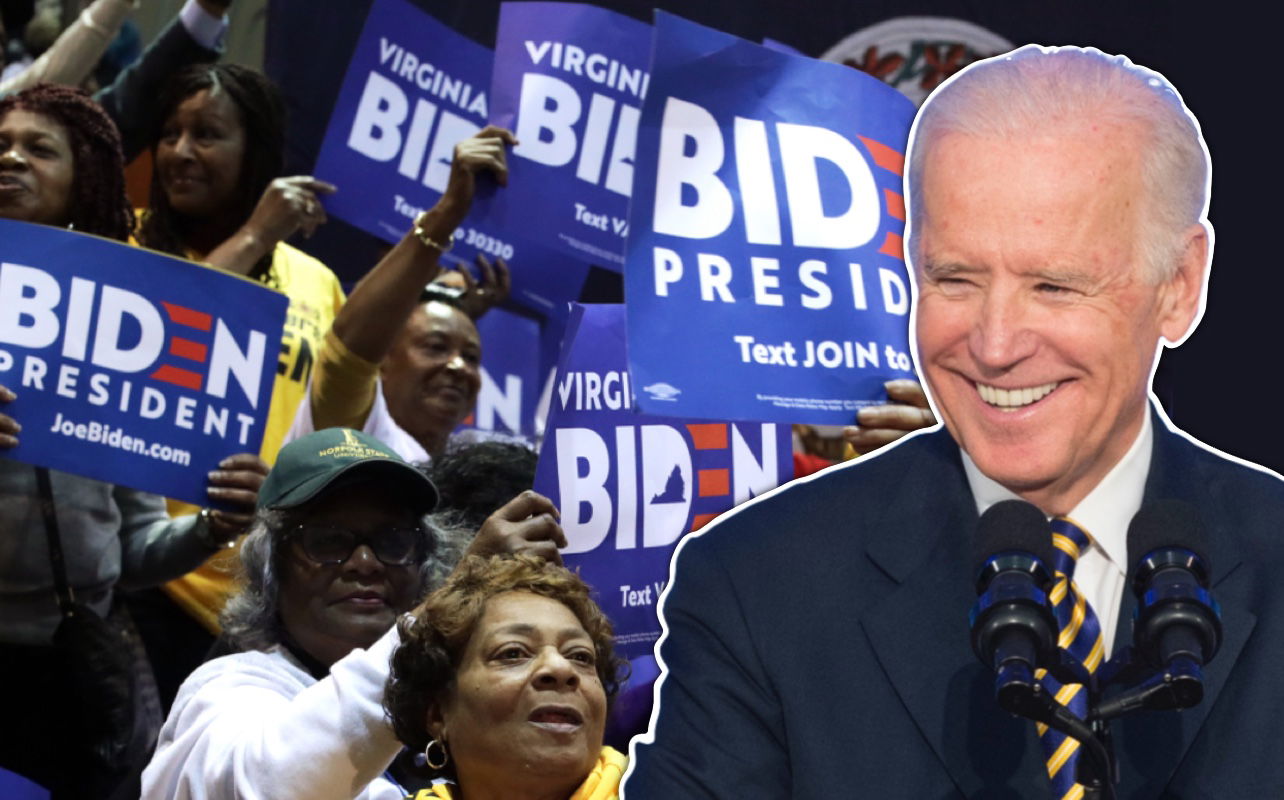
March 13, 2024
As Presidential Race Heats Up, Biden Campaign Turns To Black Media To Tell Its Story
President Joe Biden is making a full court press to garner the support of Black voters in the 2024 election by going through Black media.
The results of Tuesday’s (March 12) primaries in Georgia, Mississippi, and Washington have pushed President Joe Biden and former President Donald Trump over the delegate threshold required to become the 2024 presidential nominees.
Long before the two received their respective designations, it was clear the general election had already taken center stage.
The pivotal questions: Will President Joe Biden and Vice President Kamala Harris gain unequivocal support from Black voters—a vital constituency for the Democratic incumbents to win reelection on Nov. 5? The campaign team for Biden and Harris is well aware that they need the same level of Black voter enthusiasm and engagement that resulted in their 2020 victory.
As a means of securing the Black electorate, the Biden-Harris campaign invited BLACK ENTERPRISE, along with other Black-owned media, to its headquarters in Wilmington, Delaware, for top officials to communicate the administration’s record with Black voters as well as share strategies to reach and fully mobilize Black voters.
These efforts prove vital on a national scale, including key battleground states such as Wisconsin, Michigan, Pennsylvania, North Carolina, and Georgia, where the incumbent received reports on flagging Black voter engagement during that race.
“This campaign is making Black media a priority—from the largest and earliest investments in Black media for a re-election campaign in history to hosting outlets at our headquarters to meet with our leadership team, we understand and value the vital role Black media will play in this election,” says Jasmine Harris, a former staffer for Sen. Chuck Schumer, (D-NY), who last month assumed the role as director of Black media. The campaign is doubling down on communicating the president’s and vice president’s accomplishments through a continuous $30 million ad blitz through Black print, digital, and radio, some of which will target the upcoming NCAA “March Madness” tournament and visits to battleground states, CBS News reported.
In a series of meetings, BE and the other media representatives gained direct access to campaign leadership, including campaign manager Julie Chávez Rodríguez; principal deputy campaign manager Quentin Fulks; communications director Michael Tyler; and campaign co-chair Cedric Richmond, a former congressman who also served as a senior advisor and director of public engagement for the Biden administration during its first two years.
The officials tackled the issue of discontent among large segments of Black voters. Fulks said the lack of overwhelming support was “not a Joe Biden and Kamala Harris phenomenon.” The Black vote has been “steadily declining for the Democratic Party,” an ongoing challenge across several campaigns. “It’s our problem now to deal with in order to get our candidates elected.”
Trump’s campaign is working to siphon Black voters through appeals to conservatives as well as with digitally manipulated images of Black supporters photographed with Trump. Messaging also includes that Black voters support him due to his mug shot and numerous encounters with the criminal justice system, tacks that have been deemed “outrageous” and stereotypical.
As reported by The New York Times, Trump is aggressively getting his message out to Black voters and receives nearly four times the support from Black voters in polling than the 6% who voted for him in 2016, based on Pew Research Center data. Despite losing Black voters in 2020, he still managed to gain their vote, relative to 2016, especially among Black men at 19%, which is greater than his results with Black women.
Hammering home the Biden administration’s achievements—from the inclusion of $5 billion to Black farmers as part of the coronavirus stimulus package to fighting to forgive billions of student loan debt despite the challenges from a conservative Supreme Court—will be critical to making the case for re-election, according to Richmond. “I think he has earned the African American vote due to his actions, deeds, and accomplishments.”
Campaign officials also realize that the Black electorate cannot be viewed as monolithic. They must strategically engage with different voter segments across an array of platforms, including digital.
Adds Harris: “We are laser-focused on reaching Black voters early and often to communicate the ways the president and vice president have delivered for us: historically low Black unemployment, billions invested in HBCUs, billions forgiven in student loan debt, Black child poverty cut in half during their first year in office, and Black small businesses starting up at the fastest rate in 30 years.”
As the campaign seeks to persuade legions of Black voters to go to the polls in early voting and Election Day, it will further seek effective ways to share the narrative of Blacks from different cross sections whose lives were positively impacted by the administration’s policies and actions.
Critical to the playbook is for the campaign to make an unshakeable connection with voters—and motivate them to vote over the next eight months.
RELATED CONTENT: What To Expect From Biden’s Final State of the Union Address Before The November 2024 Election